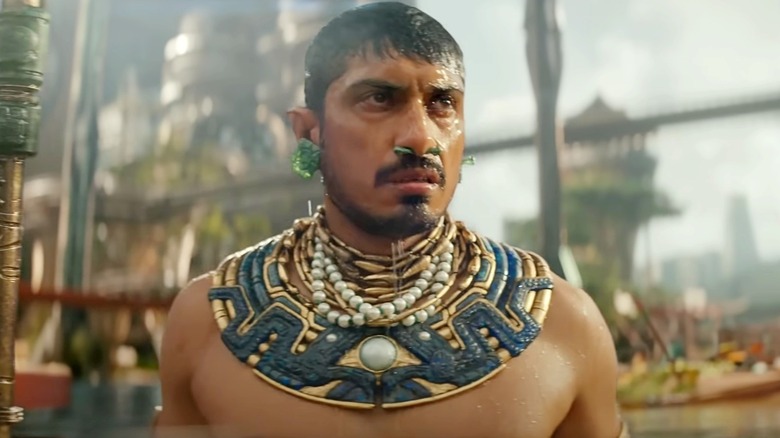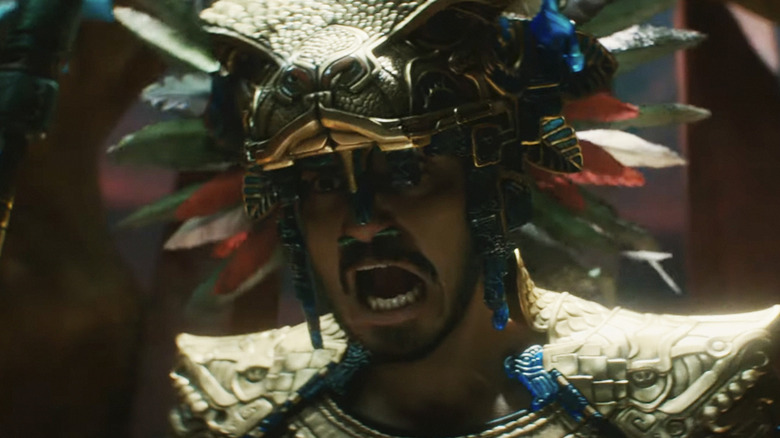Tenoch Huerta's Hopes For Black Panther: Wakanda Forever Go Beyond Box Office Success
The first "Black Panther" remains one of the best Marvel movies — a film with fantastic direction, stunning action, a climax that looks straight out of "The Phantom Menace," a spectacular soundtrack full of banger after banger, a great script with relatable characters, one of the best Marvel antagonists ever, and a lived-in world rich in detail.
The film was not only a tremendous financial success, but it was also a cultural moment. Truly, it is easy to understate just how big that first film was. There were celebrations at the theater and people dressing up like they were going to a wedding. Now, four years after the release of the Oscar-winning film, "Black Panther: Wakanda Forever" promises to repeat history in an even bigger way. Early reactions praised the film for its epic scope, its loving tribute to Chadwick Boseman, and the film's introduction to Namor.
Indeed, "Wakanda Forever" is also set to introduce a hugely important part of the Marvel universe with Atlantis, the hidden kingdom and longtime enemy and also an ally of Wakanda in the comics. Atlantis is led by prince Namor the Sub-Mariner, one of the very first Marvel characters, here reimagined as a warrior prince of clear Mesoamerican influences, which actor Tenoch Huerta hopes will lead to the film having success beyond the box office.
Bringing new representation for the MCU
Speaking to The Verge during the press junket for "Wakanda Forever," Tenoch Huerta spoke about his hopes for the fim to help Latin American embrace their Indigenous and African roots.
Even though almost everybody in Mexico and Latin America at large as Indigenous or African roots, "culturally, we are apart from [our] Indigenous roots," Huerta said. "Embracing those roots, and honoring these two sources — main sources in Latin America, which [are] African and Indigenous roots — is really important. I hope this helps people to embrace who they are. Who we are."
Growing up in Latin America, we are taught about our pre-colonial history as something distant and essentially disappeared, rather than something that was stolen from us but continues to exist. Indigenous peoples are discriminated against, and their cultures and histories are not taught in schools as much as, say, those from Europe.
"They taught us to be ashamed of who we are, but it's time to cut [that shame] off and say, 'Yeah, this is who I am; I never had anything wrong with me,'" Huerta said. "The mistake was in the eyes that were looking at us — that were judging us. Most of the time, it was ourselves. It's time to change the glasses and now reconcile who we are with our ancestors — with our old, old grandparents — and embrace them."
This is why it matters that Namor is being reimagined as not just Latin America, but specifically as Indigenous Mesoamerican, free of Spanish colonization, just like Wakanda is a place free of any colonization. Add in Huerta being an actor of Aztec and Purépecha descent, and "Black Panther: Wakanda Forever" has a unique opportunity to offer some unique representation in mainstream blockbuster cinema, and to make people open their eyes to unspoken dark chapters in Latin American history and the way we approach it.

